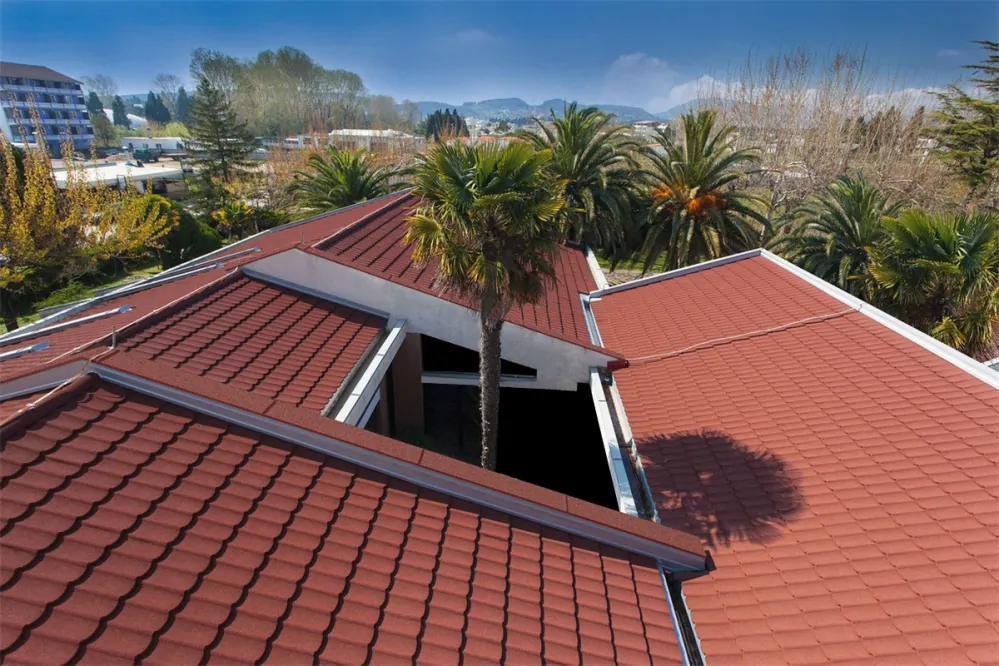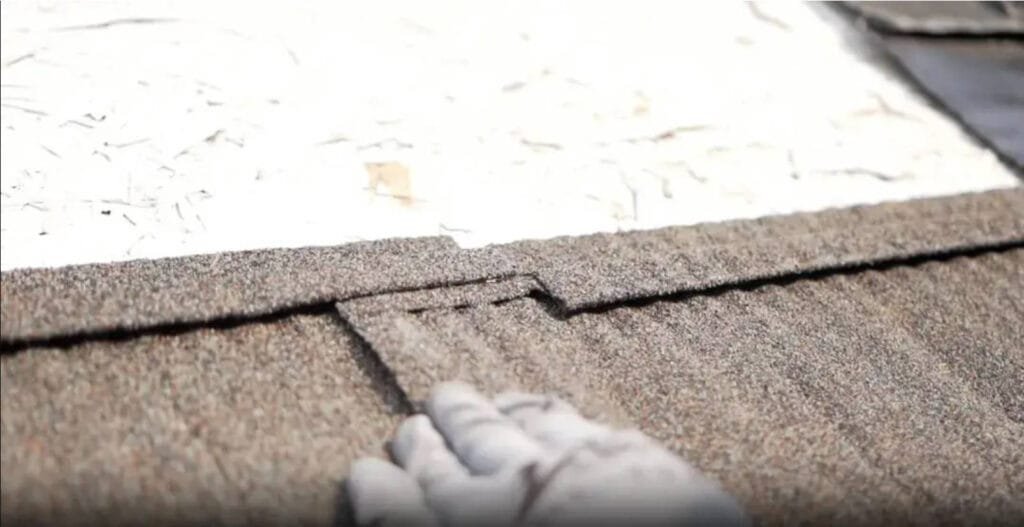[立即获取气候适应报告] - 输入坐标,免费获取定制的屋顶解决方案
当 70 ℃ 的温差成为家常便饭:金属屋顶的终极挑战
美国国家航空航天局 2025 年全球地表温度数据显示,撒哈拉沙漠夏季地表温度可达 82 ℃ 而北极圈内的冬季气温会急剧下降到 -56 ℃ .在这种极端环境下,传统屋顶材料的平均寿命不到 8 年,而 石材涂层金属屋顶 创造了 35 年的工程奇迹,在五个维度上采用了创新技术。

本文将深入分析同一种金属屋顶如何通过材料科学和结构设计的精妙平衡,征服地球上气候最恶劣的地区。
材料技术:从纳米涂层到航空合金
1.温度自适应基底
-AZ220 镁铝锌合金:
-热膨胀系数 11.5 × 10 -⁶/℃ (普通钢 23 × 10 -⁶)
-耐温范围 -80 ℃ 至 +150 ℃ (由欧空局航空材料部认证)
-复合涂层系统
| 涂层等级 | 功能 | 沙漠适用性 | 极圈适用性 |
|---|---|---|---|
| 外层 | 二氧化钛陶瓷反射膜 | 反射 95% 红外线 | 防止冰晶粘附 |
| 中间层 | 弹性聚氨酯缓冲层 | 吸收热膨胀应力 | 抗冻融开裂 |
| 底层 | 纳米硅烷防腐层 | 耐盐雾腐蚀 | 抗极性酸沉淀 |
2.气候定制表面处理
-沙漠版
-微孔散热结构(表面温度降低 12-15 ℃)
-抗紫外线等级 GSB AL 3 (10 年色差 Δ E ≤ 1.5)
-极圈版本:
-超疏水涂层(接触角≥ 160°,自动滑雪)
-防结冰电极系统(耗电量仅为 0.8 瓦/平方米)
结构设计:对抗自然力的工程智慧
1.动态锁定系统

-沙漠应用:
-可调节间隙(± 5 毫米),以应对热膨胀
-通过导流槽加速散热(表面温度降低 8 ℃)。
-极圈应用:
-三层密封条(在 -60 ℃ 下进行弹性测试)
-防雪崩锚固件(抗拉力 18 千牛/平方米)
2.热能管理革命
| 参数 | 沙漠计划 | 极圈计划 |
|---|---|---|
| 太阳反射系数(SRI) | 92 | 25 (主动吸热) |
| U 值(隔热系数) | 0.15 W/(m ² - K) | 0.08 W/(m ² - K) |
| 通风层高度 | 8 厘米(强制对流) | 2 厘米(封闭绝缘) |
极端环境认证标准释义
1.必须在沙漠地区进行测试
-ASTM G154:4000 小时紫外线老化(相当于暴露 25 年)。
-ISO 12944-C5M:高盐雾腐蚀认证
–EN 13501-1:A1 级防火(防止丛林火灾蔓延)
2.极地地区核心认证
-ISO 20340:耐 -60 ℃ 低温冲击
-MIL-STD-810H:1000 次冻融循环测试
–NS 3515 雪荷载≥ 6.5kN/㎡ 认证
全球极端气候项目实证研究
案例 1:迪拜太阳能公园指挥中心
-挑战:日温差 45 ℃+沙尘暴颗粒影响
–解决方案 :
-沙漠特别版金属车顶(带自洁涂层)
-集成光伏通风和散热系统
–成就 :
-空调能耗减少 37%
-获得 LEED 零能耗认证
案例 2:挪威斯瓦尔巴全球种子库
-挑战:-40 ℃极寒+年平均降雪量 4.5 米
– 解决方案 :
-极圈屋顶+电动除冰系统
-钛合金锁扣的防冻裂设计
– 成就 :
-15 年零维修记录
-入选联合国气候变化最佳做法
获得生存计划的三个步骤
- 气候诊断:
-利用美国国家航空航天局(NASA)气象数据库分析该地点的极端参数 - 系统匹配:
-智能推荐 12 种涂料组合和 8 种结构方案 - 精确施工:
-获取气候适应性施工手册(包括扭矩/间隙调整公式)
常见误解破解
❌ 误解:"高反射涂层适用于所有炎热地区
✅ 真相:阿拉伯半岛需要 GSB AL 3 级,而热带雨林地区应选择 AL 2 级来预防霉菌
❌ 误解 :"极地屋顶越厚越好"
✅ 真相:轻质设计(≤ 7 千克/平方米)实际上降低了雪崩风险
❌ 误解:"同一种材料无法平衡极热和极冷"
✅ 真相 :通过分子结构调节实现双向性能优化
限时极地生存包
提交要求,尽情享受:
- 免费访问气候数据库 (价值 $2000/年)
- 军用材料样品套装 (包括沙漠/极圈试件)
- 全球极端气候建设网络 连接
